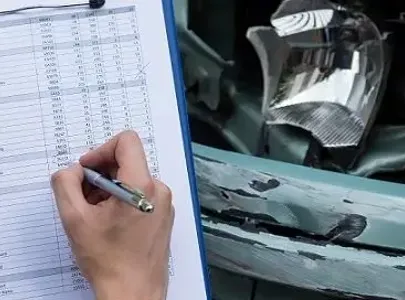Fuel cards are an increasingly popular solution for businesses looking to reduce petrol and diesel expenditure, manage invoicing and make life easier for employees driving during the course of their work.
But there are many questions and queries you may have about what it means for various aspects of the business. At fuelGenie we have put together a list of commonly asked questions and responses to help explain more about fuel cards and how they work.
Please note that the following information is for general information purposes only and does not constitute legal, financial or tax advice.
How do fuel cards for employees impact health and safety responsibilities?
The health and safety responsibilities of the employer are largely unchanged regardless of how the petrol or diesel is paid for. According to the Health and Safety at Work etc. Act 1974, employers are required to take appropriate steps to ensure the health and safety of their employees. That includes when they are driving in the course of their employment, whether in a company vehicle, a hired one or their own.
What do fuel cards for employees mean for rights in the workplace?
Workers are entitled to a number of employment rights in the UK. These include being paid the National Minimum Wage, statutory paid holiday, rest breaks, protection for whistleblowing and non-discrimination on the basis of age, ethnicity or sexual orientation.
When it comes to paying for fuel, it is unlikely that using a fuel card would have any impact on the workplace rights of employees, as these rights are enshrined in law and remain applicable in all circumstances.
How do fuel cards for employees affect contracts?
Some employment contracts may include terms on fuel allowance. In these cases, if the company chooses to switch to fuel card usage, these may need to be amended to reflect the new arrangement.
Do fuel cards for employees have any impact on pensions?
The use of fuel cards to manage petrol and diesel spending should not usually impact on workplace pensions. However, if unsure, we would advise discussing with your pension provider.

What are the tax implications of fuel cards for employees?
When it comes to travel benefits, employers usually need to report any use of company cars for private journeys, cars adapted for employees with a disability, or provision of fuel for private journeys.
It is in this third category that using fuel cards may throw up tax liabilities. If an employee uses a company fuel card for both work and private travel, but doesn’t pay back the private element, then that fuel used for private travel becomes a taxable benefit. Employees would be liable for declaring this benefit and paying any tax due.
The best way to avoid this situation is to ensure employees understand the company fuel card is only to be used for spending on company-related travel.
Should fuel cards for employees be in the handbook?
Yes, it is highly advisable to include instructions about the use of company fuel cards in the company handbook. That way clear guidance can be given on, for example, which petrol filling stations to use, how to operate the fuel cards and why this way of managing fuel spending is better for employees and for the business.